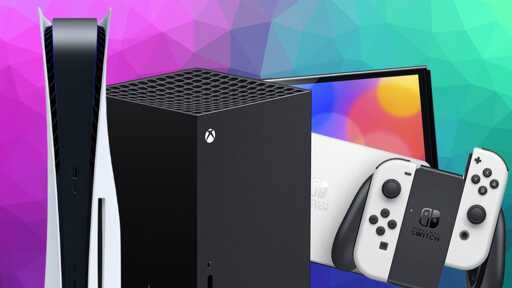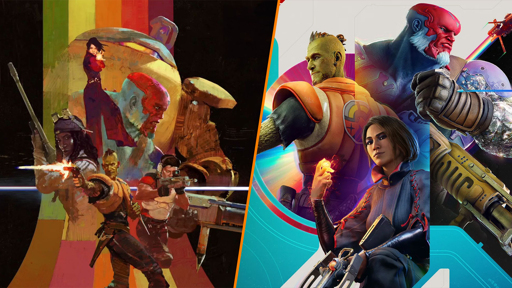- 155 Posts
- 3.15K Comments

 3·14 hours ago
3·14 hours agoIts source is a wiki, noted in the bottom right corner. I’ve seen plenty of these numbers reported publicly before. By its very nature, it’s going to lag behind real time.

 2·18 hours ago
2·18 hours agoOur demographic is dwarfed by the type of person who only plays 4 or fewer games per year. These people play Assassin’s Creed, Call of Duty, EA’s soccer game, GTA, etc. Call of Duty is one of the highest selling games each year because it sells to people whose only video game for the year is Call of Duty.

 41·18 hours ago
41·18 hours agoI played it at release, and I had a negligible number of technical issues on PC. Not everyone had a bad time with it back then.

 21·1 day ago
21·1 day agoThis is number of copies sold. It really did sell that high. And if that blows your mind, wait until you find out Human Fall Flat sold like 40M copies.

 57·1 day ago
57·1 day agoWell, I know at least one part of this is pretty out of date. Baldur’s Gate 3 just got confirmed a few weeks ago as having sold over 20M copies. We have so many round numbers here because companies generally only share milestones.

 11·1 day ago
11·1 day agoThat might be a solid recommendation for others, but speaking for myself, licensed cars and tracks do nothing for me and in most cases will probably put some drag on my enjoyment, because real racing asks you to do things like “not checking the car next to you” that would put real people in harm’s way; and damaging licensed cars in video games is generally frowned upon by the licensors. And also speaking for myself, the store page says it has no local multiplayer, which is my primary use case for a racing game, so its omission is a deal-breaker. Most of the genre has gone this way in recent years, catering to the crowd that likes licensed cars and real tracks, and that’s why I haven’t had as many racing games to play of late. There’s still some stuff for me, though.

 10·2 days ago
10·2 days agoThe thing is, for a game like Clair Obscur or Elden Ring, I’d echo those same complaints, but I still enjoyed them; in Elden Ring’s case, despite those complaints, I’d still call it one of the best games ever made. You might share those criticisms but still find plenty to love about it.

 14·2 days ago
14·2 days agoThese probably mostly are the consensus most anticipated games of 2026, but I’ll throw a few of the ones I’m most excited for in here.
If you like fighting games, this is looking to be a great year. We’ve got Marvel Tokon: Fighting Souls, Avatar Legends: The Fighting Game (which may still be a working title?), and the one I’m personally most excited for, Invincible Vs.
I love Batman Arkham combat, and if you do too, you should keep your eye on Dead as Disco.
The FPS genre has largely disappointed me in the past decade, but despite the absence of any multiplayer modes, Mouse: P.I. for Hire looks to be delivering what I haven’t been getting from this genre for years. We should also, finally, presumably, maybe, see a release for Judas.
Similar disappointment has followed racing games, but the indie scene has been trying to pick up the slack, and we’ve got a AA endeavor from racing game veterans that looks cool, complete with a story mode, called Screamer.
In the survival space, both Palworld and Enshrouded are set to leave early access in 2026.
For metroidvanias, I’ve got Bloodstained: The Scarlet Engagement and the beautifully animated The Eternal Life of Goldman on my radar.
And in the RPG space, I’ve got my eye on Warhammer 40,000: Dark Heresy and The Expanse: Osiris Reborn coming up, both from Owlcat. Like The Expanse, Exodus is also planning to fill the Mass Effect void, because it’s unlikely that a new game called “Mass Effect” will do so.

 2·3 days ago
2·3 days agoI know how it works. Do you know of a game on GOG with dedicated servers that the company is paying for that also uses GOG’s matchmaking to find those dedicated servers? Because at that point, they may as well run the matchmaking themselves and open up the possibility for cross play, and I can’t imagine what value they’d get from GOG’s services. For instance, I’m pretty sure I’m hitting GOG’s matchmaking servers for the likes of Star Wars Battlefront II, but all that’s doing is registering player-run servers that it then connects me to.

 1·3 days ago
1·3 days agoIf they’re using GOG matchmaking to find dedicated servers, then those binaries are in our hands already, as far as I know. Feel free to provide a counter example if you know of one. The whole point of using the store’s infrastructure is that the developer doesn’t have to pay for it, and I’ve never heard of a store that offers hosting for bespoke dedicated servers for different games.

 61·3 days ago
61·3 days agoI played Clair Obscur, liked it, and it’s in my top 10 for the year out of about 18 games. But man, the reception of that game in the Game Awards and such is wildly out of sync with what I thought of it, and it makes perfect sense to me that it wouldn’t end up in an outlet’s top 20.

 6·3 days ago
6·3 days agoAnd that likely stopped making financial sense once online multiplayer operated at larger scales. On PC, GameSpy servers came with ads. Even downloading patches for games meant going to an ad-supported third party web site.

 15·4 days ago
15·4 days agoI feel like a lot of understanding behind the financial decisions around online games could happen if we explained to the kids what GameSpy was. Online was never “free”. Before microtransactions and Steam footing the bill, there were ads. But we had self-hosting as a backup plan back then.

 53·4 days ago
53·4 days agoThe most benefit-of-the-doubt read on this that I’ve got is that, as a publicly traded company, the small margins GOG operates in might not be worth CDPR’s time when they can get higher margins for the same investment elsewhere. Adding some of my own hopium and conjecture, based on the “Why is Michał Kiciński doing this?” section of the FAQ, I hope this means a semi-near future of closing up the last few gaps in GOG’s DRM-free promise.
One of my biggest pet peeves with GOG is how it handles multiplayer. Some games add a warning when multiplayer is only available via LAN and direct IP connections. I need a warning when the opposite is true, because if it relies on GOG Galaxy or some other server, it’s just DRM by another name. To their credit, this warning is usually there, but I’ve come across a few games’ store pages that left it to the imagination, and I’d have to go to the forums link to find someone complaining about it to be sure. Other games, like Doom 2016, just omit multiplayer from the GOG version entirely, because they can’t even fathom how to make multiplayer work in a self-hosted way.
What I’d like to see (I’m a programmer, but I’m not deep in the world of gaming software engineering) is for GOG to provide a drop-in multiplayer server that can serve as a self-hosted version of GOG Galaxy’s multiplayer functionality, so that even if the developer doesn’t see it as financially viable to ensure their game’s multiplayer lives on, GOG can do that for them and make any online game LAN-able. If that’s possible. In my head, it sure seems possible.

 4·4 days ago
4·4 days agoWhat you can play right now in Star Citizen is arguably better than what Duke Nukem Forever will ever be.

 14·5 days ago
14·5 days agoSame (unless they make some drastic changes), but I agree with Cifaldi’s outro here on all the ways that this system was super important to the medium’s history, even the parts like total control over the system’s library that today is nothing short of bad for the consumer.

 1·6 days ago
1·6 days agoI’ve enjoyed a survival game here and there, but it doesn’t look like the multiplayer of Grounded survives offline, which is a deal-breaker for me, especially when so many of its peers have it.
Pre-ordering existed for the customer’s benefit back when all games were physical and you wanted to guarantee you’d have a copy available for you at launch. At some point, companies realized that they could use it to forecast success or, more nefariously, entice you to buy a stinker of a game before you’ve had time to hear that it sucks. I haven’t bought physical games in a while now, but when I did, the last time I had a hard time acquiring one at launch was more than 20 years ago (I remember Halo 2 being the mile marker for when companies got to be pretty good at meeting demand). In the digital space, it makes even less sense. They still do pre-order incentives sometimes, for the same reason as above, even when the game is good, but the bonuses are so throwaway anyway that it usually doesn’t matter. Digital storefronts on PC have a pretty good refund policy, so if you’re diligent enough, you can pre-order the day before it comes out, get the bonus, let the dust settle on review scores, and decide if you want to keep the game with the pre-order bonus or just refund it. There’s very little risk in that. Without a pre-order bonus, there’s absolutely no reason to bother, and quite frankly, I don’t feel good about supporting those bonuses in the first place.
I have no issue with early access games, especially if the game lends itself to the model, which would be anything sufficiently sandboxy that can be heavily modified by changing some variables or adding a single mechanic. Larian’s RPGs are very freeform in the ways they let you solve problems and can be upended by different powerful abilities and whatnot; roguelikes are perfect for this model, because you’re replaying them a lot anyway; regardless of genre, the ones that would catch my eye are the ones that are looking for gameplay feedback and not outsourcing QA for finding bugs to a bunch of paid customers. The real problem with early access for me now is that there are so many finished games coming out all the time that look interesting that it’s difficult to justify playing one that’s not done.










There were three edits in the past few days. Feel free to look at the diff, but I’m not making a Fandom account to do so. It would stand to reason that it was this list, and those three edits probably account for Palworld’s number being lower in the graphic and why the wiki has two more games on it, if they pulled the data more than a few days ago.